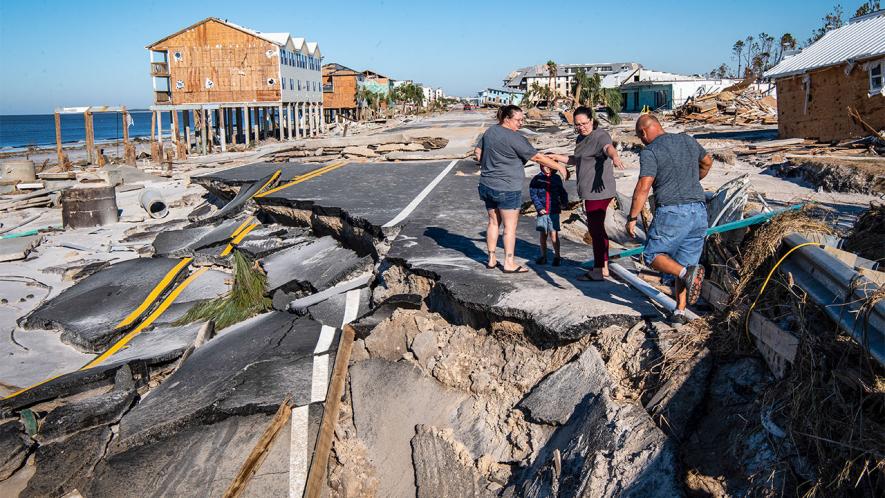Climate Change to Make Prediction of Furious Storms More Difficult

Image Courtesy: Sciencemag.org
Where the sky is loaded with polluting particles, when the seas are warming, furious weather events are becoming more common. Both the hemispheres of the world have now become steady onlookers of hurricanes, typhoons, tsunamis in ever growing intensity and frequency. The latest in this year’s list of ravaging storms is Michael Hurricane that roared into Mexico Beach in Florida, US. It is the strongest storm that has ever hit the Florida Panhandle. Hurricane Michael caused widespread damages that include Florida State University’s Panama City campus and Tyndall Air Force base.
Michael was predicted well in advance, but what makes it special was the failure in predicting its sudden intensification. At the time Michael first developed, it was found to be a Category 2 hurricane. But in less than 24 hours before it made the landfall, it became a massive Category 5 one. Category 5 hurricanes are the most powerful ones.
The apparent failure in predicting the massive intensity in the cases of recent storms is due to unusual warm water, thanks to man-made climate change. Climatologists are raising the concern of global warming influences in prediction failure about the hurricanes. Michael is not the only instance where prediction failure of this kind is seen. Last year’s Harvey and this year’s Florence also made the intensity prediction a failure. This continuous prediction failure has also made storm-created damages more severe because this failure renders less time to prepare for a monstrous storm. Initially predicted to be decent, when a storm revs up to a level that can escape the predicting techniques, evacuation becomes extremely challenging within a short lead time, making widespread human loss inevitable.
But how is global warming making storms furious and difficult to predict? When a storm passes over warm water, its intensity abruptly increases. The sea surface temperature is increasing with global warming and to add to the worry is the fact that the deeper water is also getting warmer. A storm is weakened by the upwelling of colder, deeper water. When man-made climate change has also made the deeper water warmer, hurricanes often continue to intensify to a scale much higher than what should have been, according to the initial conditions of the storm.
A 2012 study on hurricane intensification trend showed that in the last 25 years storms are intensifying at a much more rapid pace. They are getting stronger more quickly and also to a higher category within a short span of time.
The impact of sea-surface temperature on storm intensity in the North Atlantic showed that for every 1 degree increase in temperature, the hurricane intensity increases by a 16 %. The current trend of warming is going to increase sea surface temperature in future and how devastating the storms will be, can easily be imagined.
Again, a 2016 study warned that almost 79% of the major storms are the ones that are rapid intensification. The result of the global warming-led rapid intensification is that we are now susceptible to witness a higher proportion of super-hurricanes- category 4 and category 5.
There exists a theoretical limit to which hurricanes can get intense. The limit sets storms in a range. But man-made climate change has put more carbon dioxide into the atmosphere and made the climate warmer, so the limit of hurricane intensity can go up, says Kerry Emanuel, the climatologist of MIT, in his comment to Science. He also remarked that the rate at which hurricanes can intensify also increases with global warming.
Get the latest reports & analysis with people's perspective on Protests, movements & deep analytical videos, discussions of the current affairs in your Telegram app. Subscribe to NewsClick's Telegram channel & get Real-Time updates on stories, as they get published on our website.
























